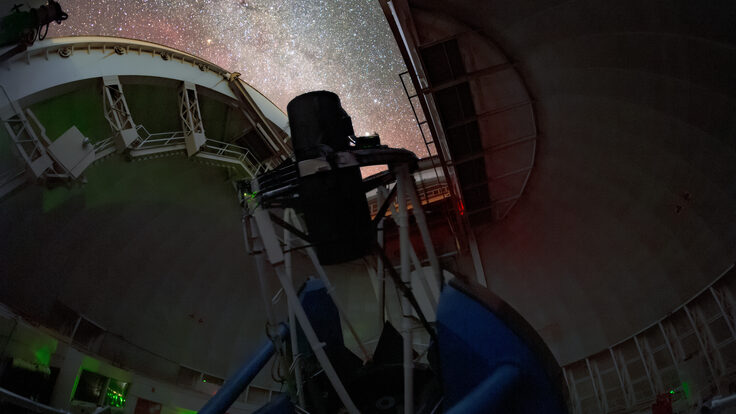Computers take on more than aliens
|
|||
| As a volunteer's computer cranks out calculations for LHC@home, it displays a screensaver with an artist's impression of the evolving particle beam. Images courtesy of LHC@home |
They started out scanning the cosmos for signs of extraterrestrial intelligence with SETI@ home. They’ve plotted chess moves, battled malaria, and folded proteins, all from their home computers. Now, volunteers are tackling particle physics with LHC@home.
It’s one of a number of distributed computing projects that allow you to download scientific data for your computer to analyze when it would otherwise be sleeping. The Search for Extraterrestrial Intelligence launched the first @home project in 1999 with screensaver software that searched for signs of life amid radio signals from space. Today, users can choose from more than 20 @home options.
The LHC@home software simulates particles cruising along the Large Hadron Collider ring, currently under construction at CERN, the European particle physics lab in Switzerland. In this case, all that number crunching helps scientists determine how to position the magnets that control the proton beam.
Since 2004, when LHC@ home hit the Internet, 40,000 users have registered, logging in from more than 100 countries. Combined, they have put in 3000 years’ worth of computer time. But they’re still hungry for more data.
“We have very eager users who want to be running their computers red-hot 24/7,” says Alex Owen, manager of the project, which recently moved from CERN to Queen Mary, University of London.
To feed the volunteers’ voracious appetites, Owen and co-manager Neasan O’Neill plan two new projects for LHC@home in early 2008. The Garfield program will test drift chambers, and Rivet will compare online data warehouses with newer data sets.
Users can also organize into teams and compete for top ranking. SwissTeam.net holds the lead with nearly 5.5 million “credits”—a measure of CPU power donated to LHC@home.
Team founder Dominique Bugmann, an IT specialist in Baden, Switzerland, manages more than 100 computers running LHC@home and other distributed computing projects.
“One of the great things about LHC@home is that what we do directly helps the scientists,” Bugmann says. “I can help the world just by running software on some PCs.”
Amber Dance









